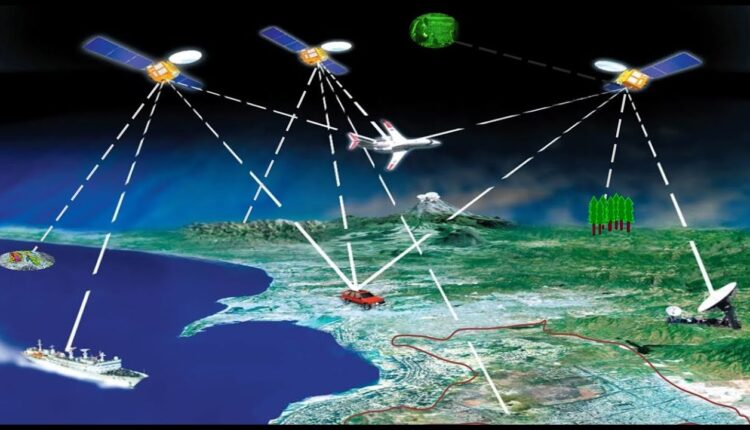©2021 Reporters Post24. All Rights Reserved.
With increasing threats from Russia’s use of GPS jamming and spoofing in the Baltic Sea, Arctic states must increase their use of countermeasures and leverage emerging technology to combat the Kremlin’s hybrid warfare tactics. NATO Arctic countries should leverage the potential of AI, reducing their reliance on GPS and vulnerable satellites.
Tensions in the Arctic Circle have risen with Russia’s invasion of Ukraine. Moreover, the impact of climate change is only decades away from permanently altering the geostrategic landscape of this region and beyond. This change is inevitable and will open new reserves of oil, gas, and minerals previously inaccessible. Russia has demonstrated its increased interest in this region by challenging Arctic boundaries and utilizing emerging cyber technology to limit other states’ presence in the Arctic while expanding its own.
The newest cyber technology Russia is utilizing is Global Positioning System jamming. This is crucial as the Global Positioning System (GPS) functions through communication with satellites. A GPS receiver will ping off different satellites based on location, time, and distances, and through trilateration, is able to formulate an accurate location of the GPS receiver.
Russia can counter these signals through GPS jamming. This occurs when a frequency-transmitting device is used to overload satellites with information and block them from communicating. Russia also utilizes spoofing, which blocks the receiver from pinging the correct satellites and instead sends false GPS data to the receiver. This is important in the Arctic Circle as numerous key ports and maritime traffic depend on GPS for navigation, such as the Bering Strait near Alaska and the Port of Kirkenes in Norway. Additionally, Nordic countries rely on their Arctic trade profits to support their economy.
Despite the prominent threat this poses, there has been little lasting pushback on Russia’s Cyberattacks. Additionally, just outside the Arctic Circle, the Baltic Sea, Russia’s behaviour in the Baltic Sea often mirrors future actions taken in the Arctic. The recent GPS jamming and spoofing of air traffic controls with ties to Russia have significantly affected Lithuanian and Estonian capitals. The former has resulted in concerns over security of Specifically with Lithuania and Estonia, we can see the impact that Russia’s GPS jamming has on these countries. In Lithuania, concerns arose over security on civilian shipping and military operations, and the latter in a month-long suspension of flights to Tartu. .As the Arctic shipping and offshore natural resources extraction become more prominent, securing connectivity and navigation, especially during crises, will be essential in maintaining the Arctic’s peace and stability. In Estonia, they had to temporarily suspend flights to Tartu for a month due to spoofing of air traffic controls.

One of the key steps that must be taken in combating this persistent method of attack by Russia is for all Arctic countries to further increase and develop their use of cybertechnology. Specifically, with the increased incorporation of artificial intelligence (AI) as a tool of defence. Arctic countries should notn’t rely solely on GPS; they need to ensure they can function in both military and civilian sectors, even with satellites being blocked. AI navigation, rather than utilizing satellites, uses vehicle sensor data and a map to locate and direct a vehicle. The United States Air Force has implemented a version of this AI in their aircraft navigation, .
Allowing them to navigate even if the satellites are being jammed.
AI is also being utilized as a tool by some Arctic states, enabling them to monitor Russia’s presence in the Arctic more closely and detect GPS satellite attacks. The Canadian Armed Forces, for instance, are incorporating AI in detecting unusual maritime activity. Additionally, many militaries and even civilian ships are building AI software that can detect when a GPS satellite is being jammed or spoofed, .
Helping to deter GPS receivers from being fed false information from a Russian attack.
However, the hesitation that is preventing all Arctic countries from making this switch is that trust in AI is still a relatively developing, . eEspecially with its application to upholding national security due to concerns with the digitalization of sensitive data and the cyber risks that can accompany this. Despite this, AI is not going away, and it is up to these countries to effectively and timely implement it as a form of defence.
With Russia’s persistent cyber-attacks, Arctic states need to rapidly leverage the power of AI to increase detection and deterrence and ensure that Arctic waters are safe to navigate in. Particularly, while these tactics are inexpensive for Russia, they exhaust NATO resources and time needed to combat them. To have effective deterrence in the Arctic they need to take risks, adapt, and implement new technology as today it might be GPS jamming but the possibilities for what Russia can use cyber and AI tomorrow are vast.


